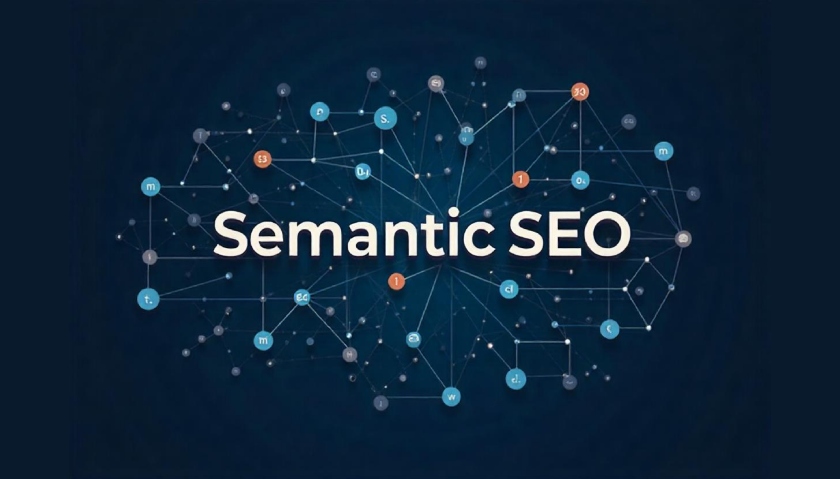Search engines have evolved far beyond simple keyword matching. Today, they focus on understanding context, intent, and meaning this is the foundation of semantic search. For businesses and SEO professionals, embracing semantic search is no longer optional. It’s the key to higher rankings, better user experiences, and long-term visibility in 2025’s competitive digital landscape.
What is Semantic Search?
Semantic search is the process by which search engines deliver results based on intent and context, rather than just matching exact keywords. Instead of requiring perfectly typed phrases, search engines now analyze meaning, user behavior, location, and past activity to provide accurate and relevant answers.
Example: If someone searches for “Red Nike shoes”, Google may not only show products but also suggest local stores, men’s or women’s categories, and related buying options.
This shift means SEO has moved away from keyword-stuffing toward content that aligns with user intent.
Why Semantic Search Matters for SEO
In the early days, SEO was about inserting high-volume keywords everywhere. Today, search engines prioritize quality, context, and relevance. Semantic search impacts SEO in several ways:
- Improves SERP Visibility: Content that aligns with search intent ranks higher.
- Enhances User Experience: Visitors find what they need faster, reducing bounce rates.
- Supports Personalization: Search results adapt to user behavior, device, and preferences.
- Boosts Conversions: The easier it is for users to find relevant products/services, the higher the likelihood of purchase.
How Semantic Search Works
Semantic search relies on advanced AI, machine learning, and natural language processing (NLP). Here’s how it interprets user queries:
- Understanding intent – Is the search informational, navigational, transactional, or commercial?
- Analyzing context – Search history, device type, and location influence results.
- Identifying relationships – Google recognizes related words and concepts (semantic keywords).
- Serving meaningful results – Instead of matching exact words, results are tailored to intent.
This explains why typing incomplete or vague queries still produces accurate results.
The Role of Semantic Search in User Experience
A smooth, personalized search journey builds trust and loyalty. With semantic search:
- Users spend less time scrolling through irrelevant results.
- Websites can recommend related products and content.
- Personalized experiences increase chances of upselling and repeat purchases.
Example: A user who frequently browses women’s apparel will see more relevant products (heels, skirts, or accessories) even when searching for broad terms like “jeans.”
Semantic Search in Business & E-Commerce
E-commerce platforms benefit greatly from semantic search by making shopping faster and smarter:
- Personalized recommendations boost order value.
- Conversational search (via voice and AI assistants) matches natural queries.
- Image-based search allows customers to shop visually.
- Localized results connect buyers with nearby stores.
In 2025, businesses that fail to integrate semantic search risk losing customers to competitors who provide a more seamless digital experience.
How Semantic Search Shapes Modern SEO Strategy
Focus on Topics Over Keywords
High-volume keywords alone are no longer enough. SEO in 2025 requires topic clusters—covering a subject comprehensively with supporting subtopics.
Use Semantic & LSI Keywords
Semantic keywords (conceptually related terms) help Google understand context.
Example: For the primary keyword “website development”, semantic terms could be SEO, UX design, web programming, content management.
Prioritize Search Intent
Every query falls under one of four intents:
- Informational – User wants to learn.
- Navigational – User wants to find a site/brand.
- Transactional – User is ready to buy.
- Commercial – User compares before purchase.
Content that directly addresses intent ranks higher and drives more conversions.
Technical SEO Still Matters
Google isn’t perfect it still needs structured signals. Optimize metadata, schema markup, and site speed, and ensure mobile-friendliness to strengthen semantic SEO.
Semantic Content Optimization Tips for 2025
To fully optimize content for semantic search:
- Create in-depth, topic-driven articles instead of short keyword blogs.
- Add FAQs that answer natural, conversational queries.
- Optimize for voice search by including question-based headings.
- Use structured data (schema) to help search engines understand context.
- Regularly update content to align with evolving user intent.
Conclusion
Semantic search has redefined SEO. In 2025, success is not about cramming keywords it’s about creating content that connects meaningfully with user intent. By focusing on topics, semantic keywords, personalization, and technical SEO, businesses can stay ahead of search engine algorithms and provide value that both users and Google reward.
If you’re ready to leverage semantic search for stronger SEO results, HumanTek’s SEO experts can help craft strategies that improve rankings, boost visibility, and drive sustainable growth.
Suggested Read: How to Do SEO for YouTube Videos








